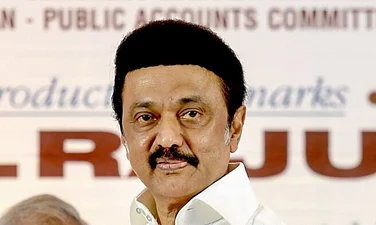The Kerala assembly unanimously passed a resolution against the implementation of the Uniform Civil Code in the country by the Bharatiya Janata Party-led central government
On Tuesday, Kerala Chief Minister Pinarayi Vijayan moved the resolution in the Assembly against the UCC implementation and called it a "unilateral and hasty" step taken by the Centre.
Further Vijayan claimed that the UCC was based upon the Hindu text of Manusmriti rather than the Indian Constitution and was a visualisation by the Sangh Parivar.
Vijayan reportedly said, "That has been made clear by Sangh Parivar long back. They are not trying to implement something that is there in the Constitution. There is no need to misunderstand it like that."
The opposition in the Kerala Assembly United Democratic Front welcomed the move by the ruling Left in the House and suggested several amendments and modifications as well. The Chief Minister took the suggestions into consideration and read out the finalised resolution which said that the state assembly was concerned and dismayed with the Centre's move to impose UCC as it was a unilateral and hasty decision that would take away the secular character of the country, reported PTI.
Further, Vijayan explained that in the Indian Constitution, the idea of general civil law is given as a directive principle and not told to be mandatory. He also mentioned that Article 25 of the Constitution guarantees the freedom of religion which includes the right to follow and practice religious personal rules and implementing UCC would prohibit people from exercising this constitutional right.
Vijayan pointed out that establishing a common civil code in Article 44 of the Constitution is merely stated but a move like UCC should be implemented after debates and discussions with the people. He said that not taking the feedback of the citizens is "concerning".
He called the imposition of UCC a "non-secular move" to attack the unity of the people and the nation as a whole and said that the Kerala assembly too shares this concern.
He said that, although there were divergent views on the UCC and B R Ambedkar's stance in this respect during the Constituent Assembly debates, Parliament was free to pursue a civil law as long as it did not insist upon its enforcement. "He only indicated a possibility," the Chief Minister contended.
The decision by the CPIM led the government to put a resolution forward made in response to an ongoing campaign against the UCC, which was being fought by both the State's governing Left and opposition UDF as well as other religious organisations within the country. The two fronts have held separate seminars against the UCC recently in Kozhikode, where representatives of various religious organisations took part.
The chief minister has claimed that the issue of UCC was being raised by the BJP's "electoral agenda" and appealed to the Centre not to push for its imposition. Vijayan accused BJP of implementing a "majority communal agenda of 'one nation, one culture' by wiping out the cultural diversity of the country". "The Central government and the Law Commission should withdraw from the move to impose the Uniform Civil Code," he has said.
Earlier in February, the Mizoram assembly had unanimously adopted an official resolution opposing any move to implement the UCC in the country.
The Law Commission of India had last month received submissions from the public regarding suggestions for the implementation of the UCC.


























